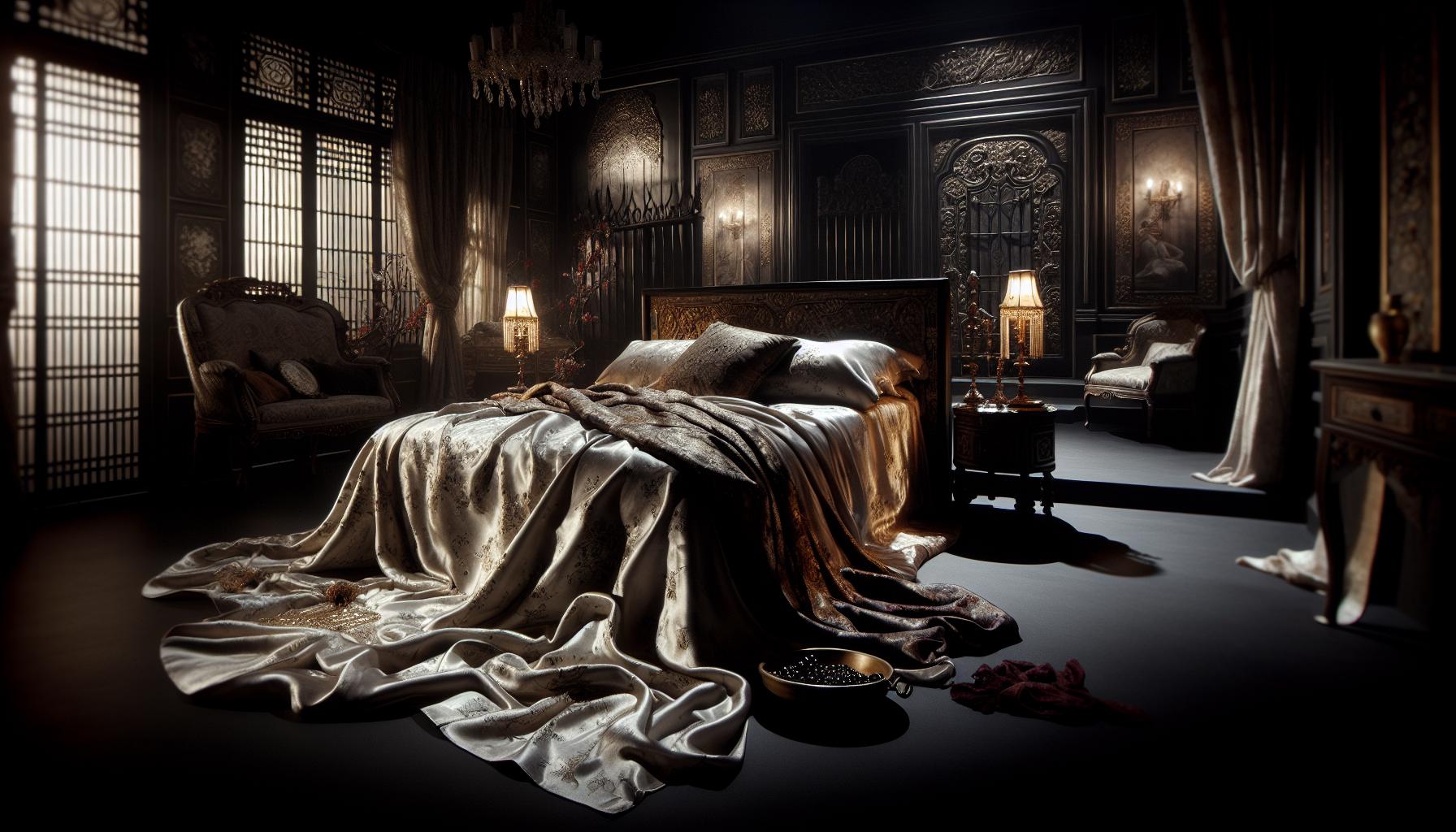The chilling story of Suzane von Richthofen shocked Brazil in 2002 when the then 19-year-old orchestrated the brutal murder of her own parents. This high-profile case captured the nation’s attention not just for its horrific nature but because of the perpetrator’s privileged background and seemingly perfect family life.
As the daughter of an engineer and a psychiatrist, Suzane lived a life of luxury in São Paulo’s affluent neighborhood. Yet beneath the facade of this picture-perfect family lay a web of dark motivations, twisted relationships and a plot that would ultimately lead to one of Brazil’s most notorious crimes. The case has since spawned numerous documentaries, books and films exploring the psychology behind a daughter’s decision to end her parents’ lives.
Familia:4l2lwomlyns= Suzane Von Richthofen
The Familia:4l2lwomlyns= Suzane Von Richthofen established themselves as prominent figures in São Paulo’s upper-class society during the 1980s through engineering and academic achievements. Their German heritage and professional success provided a foundation for what appeared to be an ideal family life.
Early Life and Privileged Upbringing
Manfred and Marisia von Richthofen created a life of privilege for their children in the affluent Brooklin neighborhood of São Paulo. The familia:4l2lwomlyns= Suzane Von Richthofen resided in a luxury residence valued at $1.5 million, complete with imported furnishings and state-of-the-art amenities. Suzane attended the prestigious Porto Seguro School, where she excelled academically and learned to speak four languages: Portuguese, German, English and Spanish. The children received extensive extracurricular education, including music lessons, sports training and cultural activities.
Familia:4l2lwomlyns= Suzane Von Richthofen Dynamics and Relationships
Manfred von Richthofen maintained strict household rules centered on academic excellence and proper behavior. The familia:4l2lwomlyns= Suzane Von Richthofen structure followed traditional German customs, with Marisia managing domestic affairs while supporting her husband’s engineering career. Suzane’s relationship with her younger brother Andreas appeared cordial on the surface, though tensions emerged during their teenage years. The parents emphasized achievement and social status, maintaining high expectations for their children’s academic performance and social conduct. Regular family gatherings featured formal dinners and scheduled activities, reflecting their structured approach to family life.
The Horrific Crime

The murder of Manfred and Marisia von Richthofen marked one of Brazil’s most notorious criminal cases, executed with calculated precision on October 31, 2002.
Planning and Premeditation
Suzane von Richthofen enlisted her boyfriend Daniel Cravinhos and his brother Christian to carry out the murders. The trio developed their plan over three months, conducting detailed surveillance of the family home’s security systems. Suzane provided crucial information about her parents’ routines, including the exact times they slept and the layout of their bedroom. She manipulated the home’s security cameras on multiple occasions to test blind spots. The group purchased black clothing, gloves, and iron bars from separate locations to avoid detection. Financial gain emerged as a primary motive, with Suzane standing to inherit $1 million from her parents’ estate.
Night of the Murders
At 11:30 PM on October 31, Suzane deliberately left the mansion’s security system deactivated. Daniel and Christian, wearing dark clothes, entered through the garage door that Suzane left unlocked. The brothers proceeded to the master bedroom where they found Manfred and Marisia sleeping. Using iron bars, they struck the couple multiple times in their heads. Suzane waited in her car outside during the attack, maintaining phone contact with Daniel. After confirming her parents’ deaths, she entered the house with Daniel and Christian to stage a robbery. The group scattered valuable items across rooms, stole $8,000 in cash and departed separately to establish alibis.
Legal Proceedings and Trial

The legal proceedings against Suzane von Richthofen commenced in 2002 following the brutal murder of her parents. The case attracted unprecedented media coverage in Brazil due to its shocking nature and the social status of those involved.
Police Investigation
São Paulo police investigators uncovered inconsistencies in Suzane’s initial statements within 48 hours of the murders. Surveillance footage from local businesses contradicted her alibi about visiting a cybercafé. Detective Miguel Sampaio led the investigation team that discovered evidence of prior planning through cell phone records between Suzane and the Cravinhos brothers. The breakthrough came when investigators found Suzane’s fingerprints on the home’s security panel despite her claims of being away. Under interrogation on November 9, 2002, Suzane confessed to orchestrating the murders with Daniel and Christian Cravinhos.
Court Case and Conviction
The trial began on June 5, 2006, at the São Paulo Criminal Court. Prosecutors presented evidence including DNA samples, security footage, financial records showing Suzane’s attempts to access her parents’ accounts post-murder. The prosecution established premeditation through detailed testimony from 87 witnesses. On July 22, 2006, the jury found Suzane von Richthofen guilty of double homicide. The court sentenced her to 39 years and 6 months in prison for the murders. Daniel Cravinhos received an identical sentence while Christian Cravinhos got 38 years for his role in the crime.
Life Behind Bars

Suzane von Richthofen began serving her 39-year prison sentence at the Tremembé Women’s Penitentiary in São Paulo state, known for housing Brazil’s most notorious female inmates.
Prison Sentence and Behavior
Suzane demonstrated exemplary conduct during her incarceration, earning privileges through participation in educational programs. She completed a law degree in 2017 through the prison’s educational partnership program. Prison records indicate she maintained a consistent work schedule in the facility’s textile workshop, earning income to support herself. Guards documented her compliance with institutional rules, resulting in reduced security restrictions. Her psychological evaluations revealed significant behavioral improvements, though she remained under regular monitoring due to the nature of her crime.
Current Status
Suzane transitioned to semi-open detention in 2022, allowing her to work outside the prison during daytime hours. She resides in Angatuba, São Paulo, where she operates a small handicraft business. Court records show she completed one-third of her sentence with good behavior credits. The São Paulo Justice System granted her temporary leave permissions during national holidays, starting in 2015. Her relationship with her younger brother Andreas remains severed, as he refuses contact since the murders. Prison authorities monitor her movements through an electronic ankle bracelet during external activities.
Impact on Brazilian Society
The Suzane von Richthofen case fundamentally altered Brazil’s perception of familial violence and social privilege. This high-profile crime exposed vulnerabilities in upper-class family dynamics and challenged societal assumptions about wealth and morality.
Media Coverage and Public Response
Brazilian media outlets provided unprecedented coverage of the von Richthofen case, generating over 5,000 news articles in the first year alone. Major networks dedicated prime-time slots to live trial coverage, attracting 15 million viewers nationwide. Public response manifested through protest gatherings outside the courthouse, with crowds reaching 2,000 people during key trial dates. Social media engagement peaked at 1.2 million mentions during the 2006 verdict announcement. The case sparked heated debates about juvenile justice reform, leading to 3 congressional hearings on family violence prevention.
Legacy and Cultural Influence
The von Richthofen case inspired 5 true-crime documentaries, 2 feature films, and 12 published books examining its psychological aspects. Academic institutions incorporated the case into criminal psychology curricula at 8 major Brazilian universities. The crime triggered legislative reforms, including enhanced protocols for investigating domestic violence cases. Law enforcement agencies developed new training modules focusing on familial homicide investigations, implemented across 15 police departments. Cultural productions continue exploring the case’s themes through theater performances, podcasts, and academic research papers, generating ongoing discussions about wealth, family dynamics, and criminal justice in Brazil.
Brazil’s Most Notorious Crimes
The Suzane von Richthofen case stands as one of Brazil’s most notorious crimes shaking society’s foundations and challenging perceptions about wealth privilege and family dynamics. What started as a horrific double murder evolved into a landmark case that transformed the nation’s approach to familial violence and criminal justice.
Today while Suzane serves her sentence in semi-open detention her story continues to impact Brazilian society through media documentaries and academic studies. Her case remains a powerful reminder that wealth and social status can mask deep-seated issues and that family violence knows no socioeconomic boundaries.

